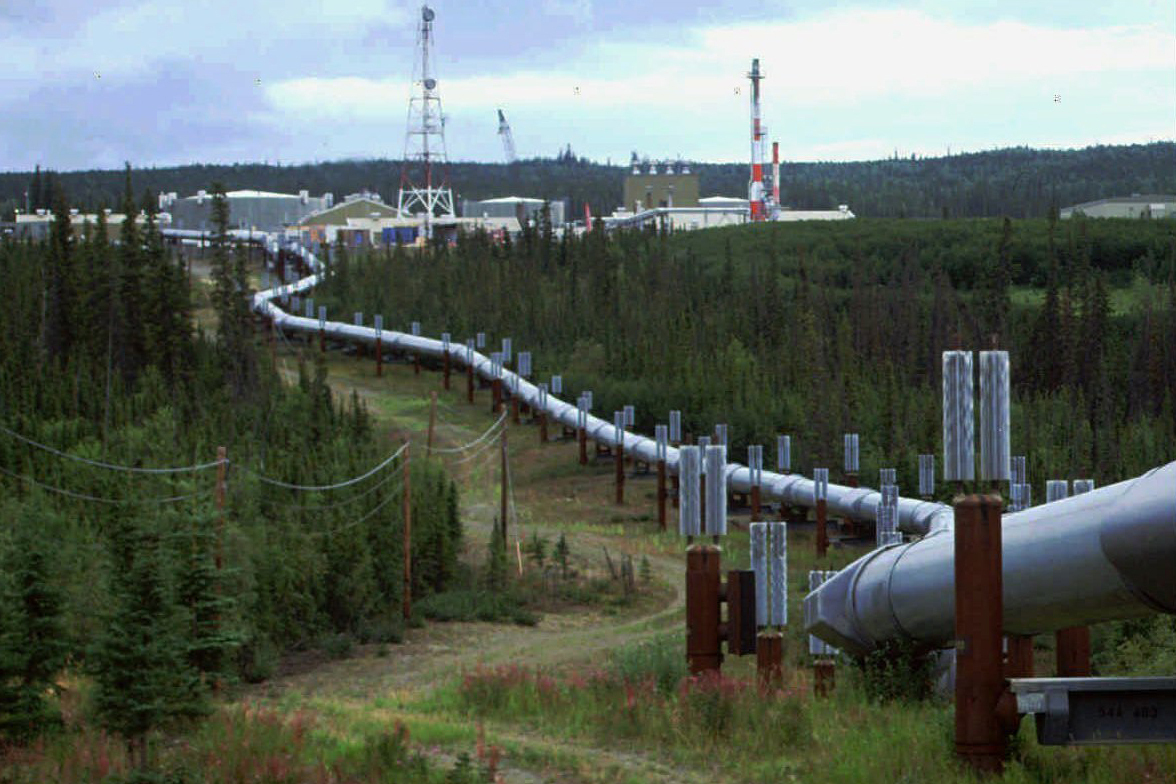JUNEAU, Alaska (AP) — Ecological groups on Wednesday petitioned the U.S. Department of Interior to examine environment effects associated with the decades-old trans-Alaska pipeline system and establish a prepare for a “handled phasedown” of the 800-mile (1,287-kilometer) pipeline, which is Alaska’s financial lifeline.
The demand comes more than a year after the Biden administration authorized the huge Willow oil job on Alaska’s petroleum-rich North Slope, a choice that was invited by Alaska politicians looking for to stem a pattern of decreasing oil production in the state and by lots of Alaska Native leaders in the area who see the job as financially essential for their neighborhoods. Willow, which is being established by ConocoPhillips Alaska, might produce approximately 180,000 barrels of oil a day.
A few of the groups who submitted the petition, consisting of the Center for Biological Variety and Sovereign Iñupiat for a Living Arctic, are amongst those who have actually asked an appeals court to reverse the approval of Willow. A choice is pending.
Oil circulation through the trans-Alaska pipeline system balanced around 470,000 barrels a day in 2015. At its peak, in the late 1980s, about 2 million barrels a day streamed through the line, which started running in 1977.
The last ecological analysis, done more than twenty years back as part of a right of way renewal, is “woefully out-of-date,” the groups stated in their petition. They mention the quick warming and alters the Arctic area has actually experienced, keeping in mind that a number of ice-reliant types, such as polar bears, have actually gotten Endangered Types Act securities because the last evaluation. They likewise raise issues about the effects of defrosting permafrost on the pipeline facilities. While the next ecological evaluation is anticipated in about a years, that’s too long to wait, they argue.
“Every drop of oil that moves through the pipeline is more environment destruction, both here in Alaska and around the globe,” stated Cooper Freeman, Alaska director for the Center for Biological Variety. “The longer we wait to have this difficult discussion about the inescapable — since we need to shift off of nonrenewable fuel sources and we need to do it urgently — the more difficult it’s going to be for Alaska.”
Michelle Egan, a representative for pipeline operator Alyeska Pipeline Service Co., stated in a declaration that the business continues to “team up with our various federal and state regulative partners as we satisfy our dedications to safe and ecologically accountable operations. We are unfaltering and devoted to being a sensible operator, securely and dependably carrying oil from the North Slope of Alaska into the future.”
Freeman stated Interior can accept the groups’ demand or reject it, which the groups might challenge. If Interior does not react in what would be thought about a sensible quantity of time, the groups can look for to force a reaction through the courts, he stated.
Interior did not have a remark, representative Giovanni Rocco stated by e-mail.
The petition asks that the U.S. Bureau of Land Management, which falls under Interior, assess a variety of choices that consist of not restoring the right of way, releasing a right of way for a duration of 10 or less years to permit “constant re-evaluation of the landscape in which TAPS runs,” setting possible limitations on just how much oil streams through the pipeline and needing North Slope oil manufacturers to embrace emissions controls for their operations.
The groups state the “just reasonable conclusion of that analysis will be a handled phasedown of the pipeline,” and their petition gets in touch with the land management company to start deal with such a strategy. It does not recommend a timeline for a phasedown.
“We’re not requesting for the pipeline to close down tomorrow. We’re stating you require to begin the discussion now,” Freeman stated. “That consists of comprehensive discussion, engagement, assessment with neighborhoods throughout Alaska, specifically on the North Slope. … The longer we wait, the more discomfort for individuals, wildlife and the environment, specifically here in Alaska.”
